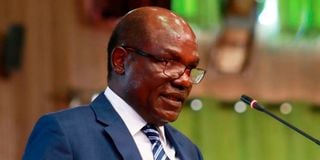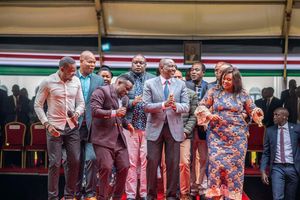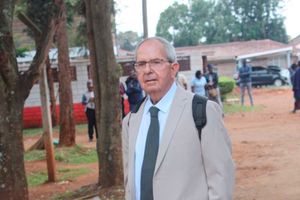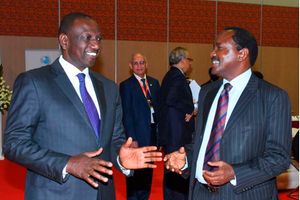Premium
IEBC races to beat poll deadlines

Wafula Chebukati, the chairman of the Independent Electoral and Boundaries Commission (IEBC).
The Independent Electoral and Boundaries Commission (IEBC) has a lot to do as the country edges closer to the General Election in August.
Some activities, as guided by the commission’s Elections Operation Plan, have been attained.
They include the end of fundraising by aspirants three weeks ago as well as submission of party nomination rules to the IEBC on October 18, 2021.
IEBC acting CEO, Hussein Marjan, announced the second phase of mass voter registration after the National Treasury gave the commission an additional Sh8.7 billion. The exercise begins this month.
The first mass registration in October and November last year captured 1.5 million new voters against a target of six million.
The 1.5 million was in addition to 180,938 voters registered between October 15, 2018 and August 31, 2021.
The number of registered voters now stands at 21.3 million.
January 16, will mark the end of submissions on amendments to nomination rules by parties.
The parties will submit their symbols, names and specimen signatures of authorised persons to certify nomination of candidates from the same day to May 6.
Public officers intending to gun for elective positions must resign by February 9.
Likely contestants in the elections include Cabinet Secretaries Peter Munya (Agriculture), Mutahi Kagwe (Health), Ukur Yatani (Treasury), John Munyes (Petroleum), Charles Keter (Energy), Eugene Wamalwa (Devolution), Simon Chelugui (Labour) and Sicily Kariuki (Water).
The IEBC will officially begin election operations on March 7. Issuing notice of General Election and the hiring of returning officers will be on March 14.
Names of the returning officers and their deputies will be shared with political parties from the same day to March 28.
The national election officials briefing and signing the code of conduct by returning officers begins on March 28 and ends on April 3.
It is on this day that recruitment of polling officers and clerks will start, ending on May 27.
Political Parties will submit to the commission membership lists and primaries hopefuls on April 9.
The IEBC will also gazette aspirants and dates for primaries on the same day.
The period will be extended to April 16 and then the parties allowed to conduct nominations until April 22.
Parties and the Political Parties Dispute Tribunal will be required to end rows resulting from the nominations from April 25 to May 6.
Hopefuls wishing to stand as independents will submit their symbols, letters of intent and clearance from the Registrar of Political Parties by May 2. They should not belong to any party.





